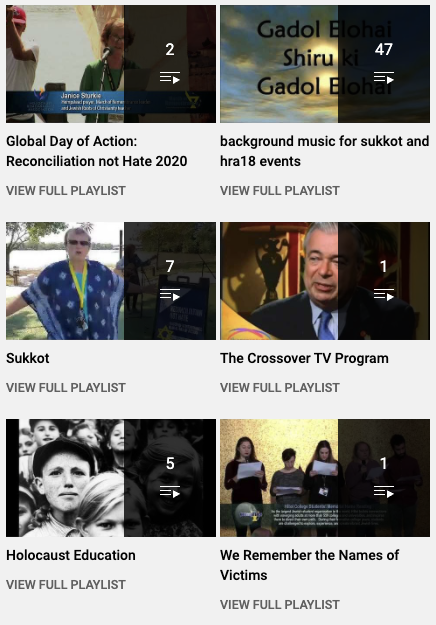April 18, 2025 – Dr. Susanna Kokkonen
Numbers 9:1-14; 28:19-25
During Pesach, which we know as the Passover Festival, we celebrate the end of slavery. Passover is often connected to the Hebrew word dror, freedom or liberty. As we recall the story of Passover in the Bible, freedom was preceded by horror. There was inhumane treatment of the slaves in Egypt. Baby boys were sentenced to death. Then came a miraculous rescue. Although God prepared both deliverance and the deliverer, Moses, Hebrew slaves still had to step up and be counted.
Courage and determination were required of leaders. They had to speak to the King of Egypt. He would have to let his slave laborers go. God had a time and reason. The reason to be given to the Pharaoh was simple: “…that they may serve Me…”
During their escape and ensuing difficulties much was required of former slaves too. Qualities, such as endurance were a necessary requisite to continue.
On April 18, 2025, we read from the Book of Numbers Chapter 9. There we are told that God spoke to Moses in Sinai following the Hebrews’ escape from Egypt. He told Moses to instruct the nation to prepare a Passover sacrifice and offer it at an appointed time. In Numbers Chapter 28, details are given in terms of daily sacrifices. The seventh day is designated as a day of no work, holy and devoted to God.
Passover is one of the most important days of the Hebrew calendar because this is one of the three pilgrim feasts when Jewish males are expected to go up to Jerusalem. These festivals in Hebrew are known for Aliyat regel, Going up to Jerusalem.
Exodus 13:17-15:26
On April 19, we read parts of the Book of Exodus, chapters 13 and 14. The ending recalls the story of Amalek attacking Israel. Amalek was a godless enemy, proud and ruthless. He did not fear God. According to the text, God Himself would have war with Amalek from generation to generation.
Are you wondering about the meaning of this enmity? Amalek would have war with Israel and indeed God. And so has it been!
Warsaw 1943
During the Holocaust, Warsaw Ghetto was the largest of all ghettoes. Like everywhere under the Nazis, Jews in the ghetto celebrated the Jewish festivals. They did so to the best of their ability under the circumstances. More Jews were brought into the ghetto from other locations. The total number of ghetto residents over the years 1940-1943 came close to 500 000. Then in the summer of 1942 Germans started deporting thousands of Jews daily to their deaths.
The Eve of Passover 1943 was a fateful time. This is when Germans started the final liquidation of the ghetto.
Young people inside the ghetto had foreseen this act already in 1942. They had seen the deportations, trains going out full of life and returning empty. They had prepared for a fight. Because it was almost impossible for ghetto residents to buy weapons, they had mainly home-made weapons whereas the German troops were supremely armed. Yet the young fighters held out for 27 days. This is more than can be said of entire nations.
Passover, the Festival of Freedom, is from then on and forever connected to the Warsaw Ghetto Uprising. It is a story of modern slavery and bravery. Rabbis in fact say regarding Pesach that not only “should each person think of themselves as if they were slave in Egypt” but following the Holocaust “each person should think of themselves as if they lived through the Holocaust”.
This is especially significant now considering recent events.
Freedom
Although many Christians are unfamiliar with the Hebrew Bible (the Old Testament), many remember Passover and Jesus celebrating it. Somehow many know that the Last Supper was part of a large festival.
But freedom is connected to Jesus’ ministry in other ways too.
A detailed account of Jesus’s first act of public ministry at a Nazareth synagogue is given by Luke. Luke gives us Jesus’ sermon. According to Luke Chapter 4, on that occasion Jesus read an extremely specific text from Isaiah 61: “The Spirit of the Lord is on me because He has anointed me…He has sent me to proclaim freedom for the prisoners…to set the oppressed free…” (NIV)
Fundamentally, freedom was a beautiful, much desired and sought-after effect of Jesus’s ministry wherever He went. This freedom was not just spiritual but very often involved concrete circumstances of oppression.
Today’s World
The attack on October 7, 2023, was an act of kidnapping and imprisoning innocent civilians, old, young, and even babies alike. The campaign of hatred that followed is Amalek-like in its nature.
As we read about Passover and serving God in the appropriate and commanded manner, I cannot help but wonder what that might mean in a world that condones kidnapping and blames Israel for self-defense.
This Passover, and as you are reading this piece, please, think about this. How can we bring a message of freedom to this dark world?
How fitting is the message of Passover to us all in this fateful moment of human history!
| Coral and crystal cannot be mentioned, and the striving for wisdom [is more precious] than pearls. | רָאמ֣וֹת וְ֖גָבִישׁ לֹ֣א יִזָּכֵ֑ר וּמֶ֥שֶׁךְ חָ֜כְמָ֗ה מִפְּנִינִֽים: |
Job 28:18 (NKJV)
Again, the kingdom of heaven is like a merchant seeking beautiful pearls, who, when he had found one pearl of great price, went and sold all that he had and bought it.
Matthew 13:45-46 (NKJV)
Torah Scrolls were attacked and desecrated during the Holocaust. The enduring images of the Kristallnacht (November 9-10,1938) are those of synagogues on fire and Torah Scrolls burning. Some of these desecrated Torah Scrolls disappeared, others were buried. Some were lovingly rescued and are on display in museums in various locations.


